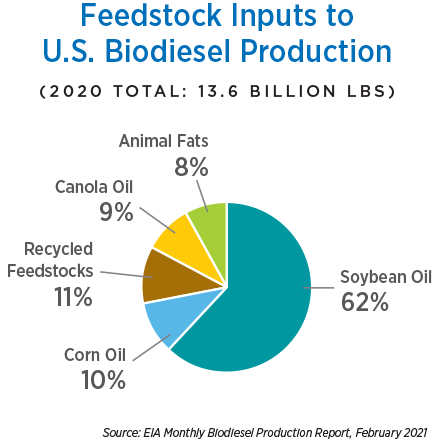Oilseeds = Clean Energy
Soy and canola oils are converted into biodiesel fuel through a process called “transesterification.” These vegetable oils may also be converted into renewable diesel through various processes such as hydrotreating, gasification, pyrolysis and other biochemical and thermochemical technologies. These eco-friendly biofuels burn cleaner than traditional petroleum-based fuels and help to reduce America’s carbon footprint.
According to the U.S. Energy Information Administration (EIA), as of reporting in June 2021, there are five plants that produce renewable diesel in the United States, with a combined capacity of nearly 400 million gallons per year. Production is expected to grow rapidly in the coming years due to expansions at existing plants and construction of new plants.
EPA estimates that, compared to traditional petroleum-based diesel, soy- and canola-based biodiesel reduces lifecycle greenhouse gas emissions by 57 and 50 percent, respectively.
According to NBB, biodiesel, compared to petroleum-based diesel, also lowers particulate matter by 47 percent and reduces hydrocarbon emissions by 67 percent. And, for every unit of fossil energy it takes to produce biodiesel, 3.5 units of renewable energy are returned, the best of any U.S. fuel.


